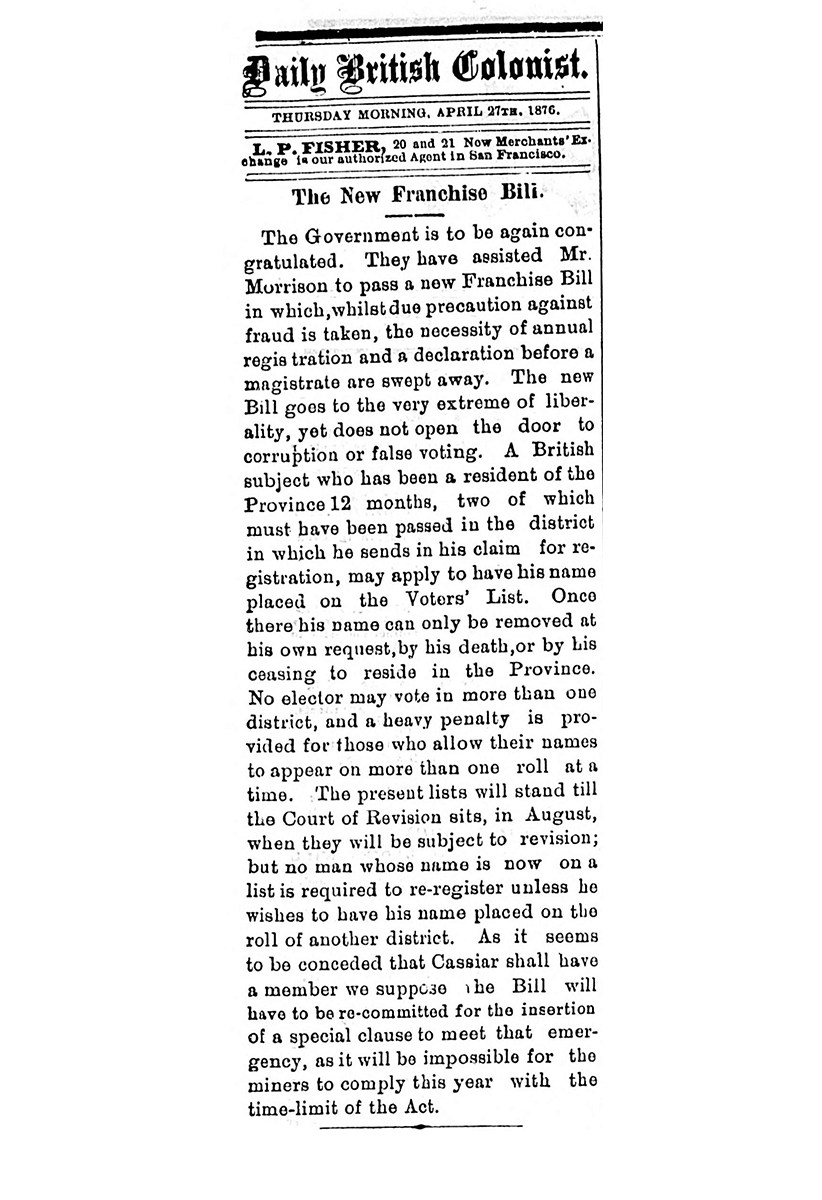Historically, participation in the colonial government and the right to vote belonged solely to those owning a predetermined amount of land. In 1856, that amount was 300 pounds worth of property to run for office and 20 acres of land to vote. This mostly limited those that qualified to just a handful of wealthy settlers. In the late 1860s, pressure for truly representative and responsible government increased.
Five years after entering Confederation, the Legislative Assembly expanded electoral representation by extending voting rights to males who didn’t own property. In 1876, male suffrage meant that an adult male needed only to be a British subject and resident in the province for a year and in the electoral district for two months. However, such men could only vote if they were not already disenfranchised through other provincial laws.
Voting was changed just after Confederation from open voting to a secret ballot to avoid intimidation and vote buying.

